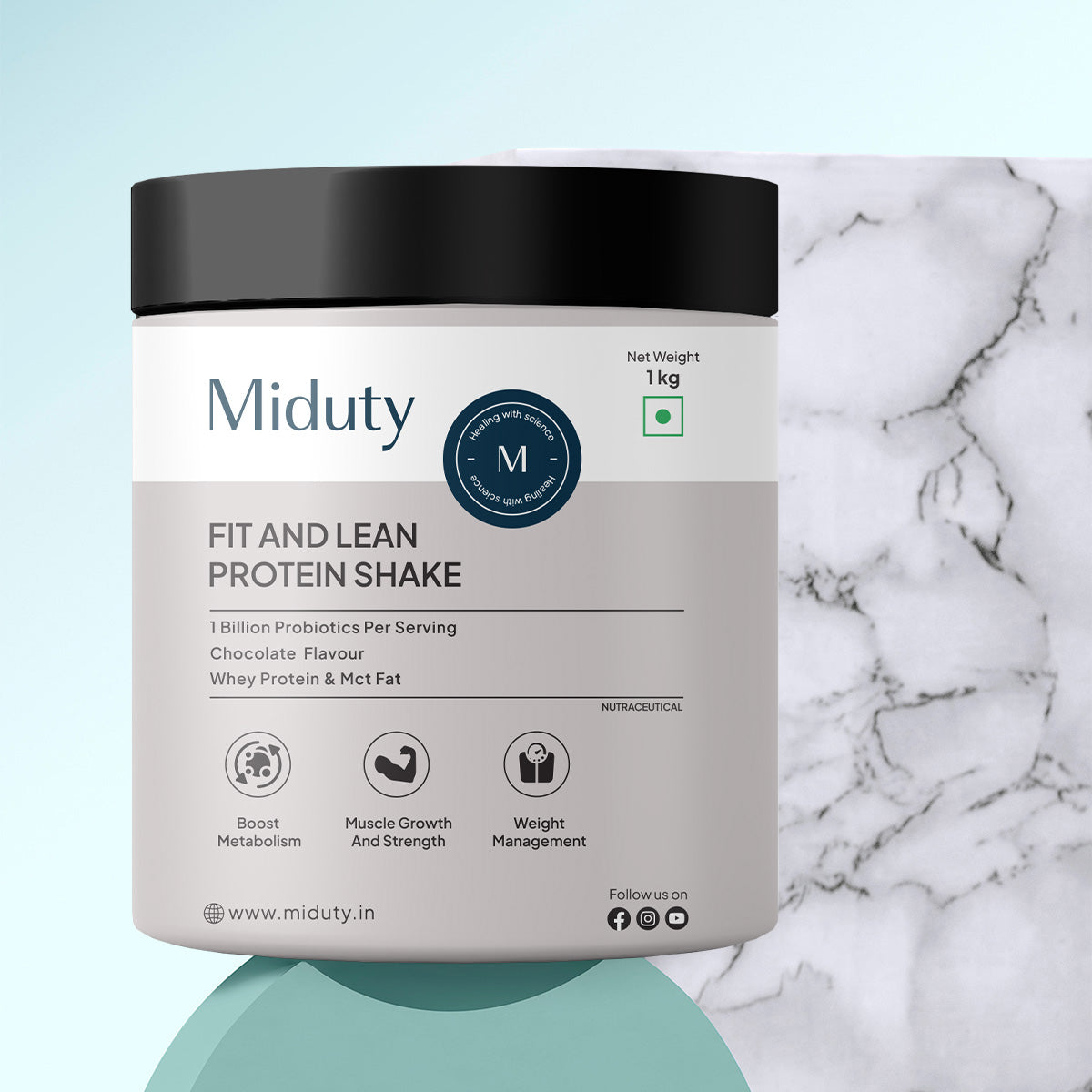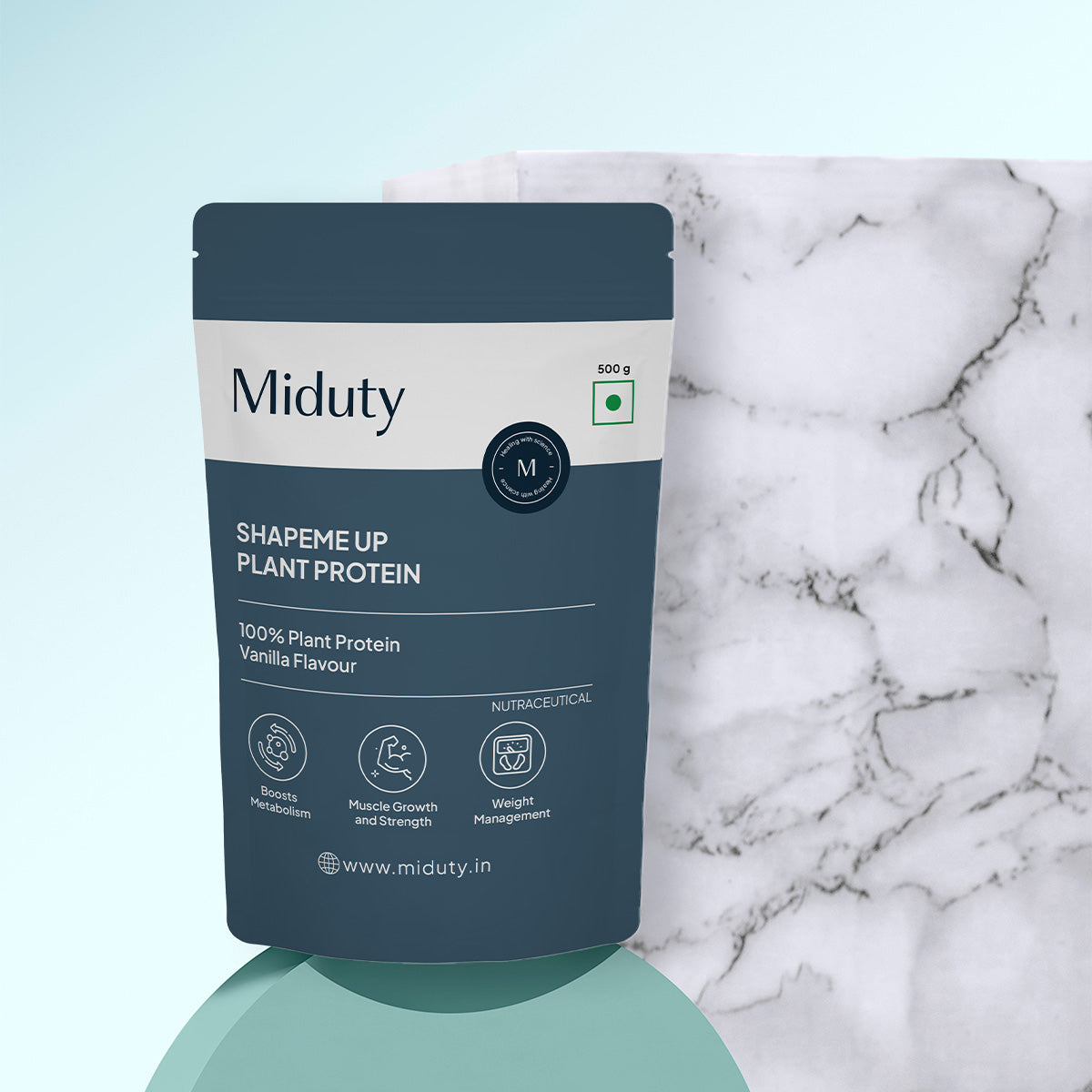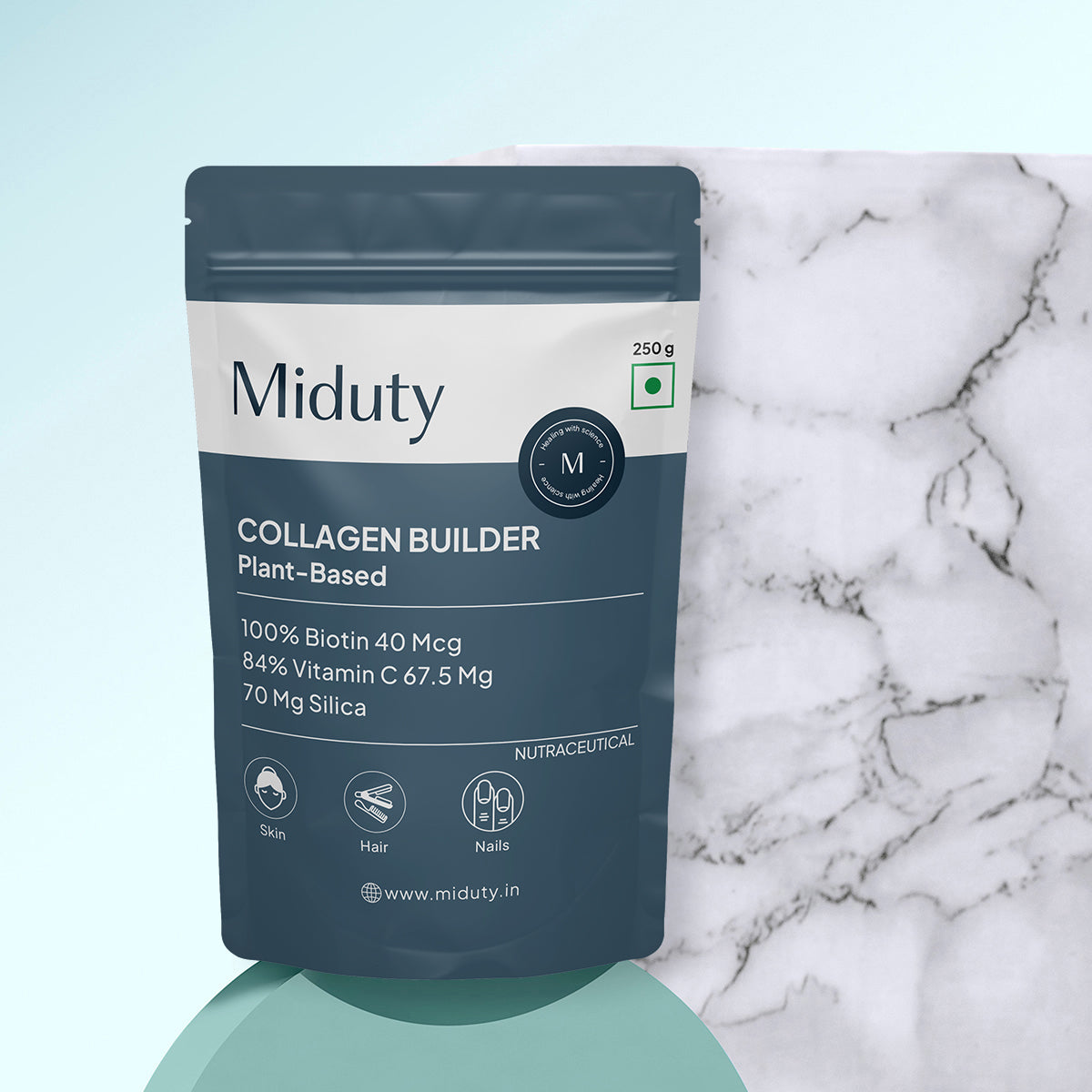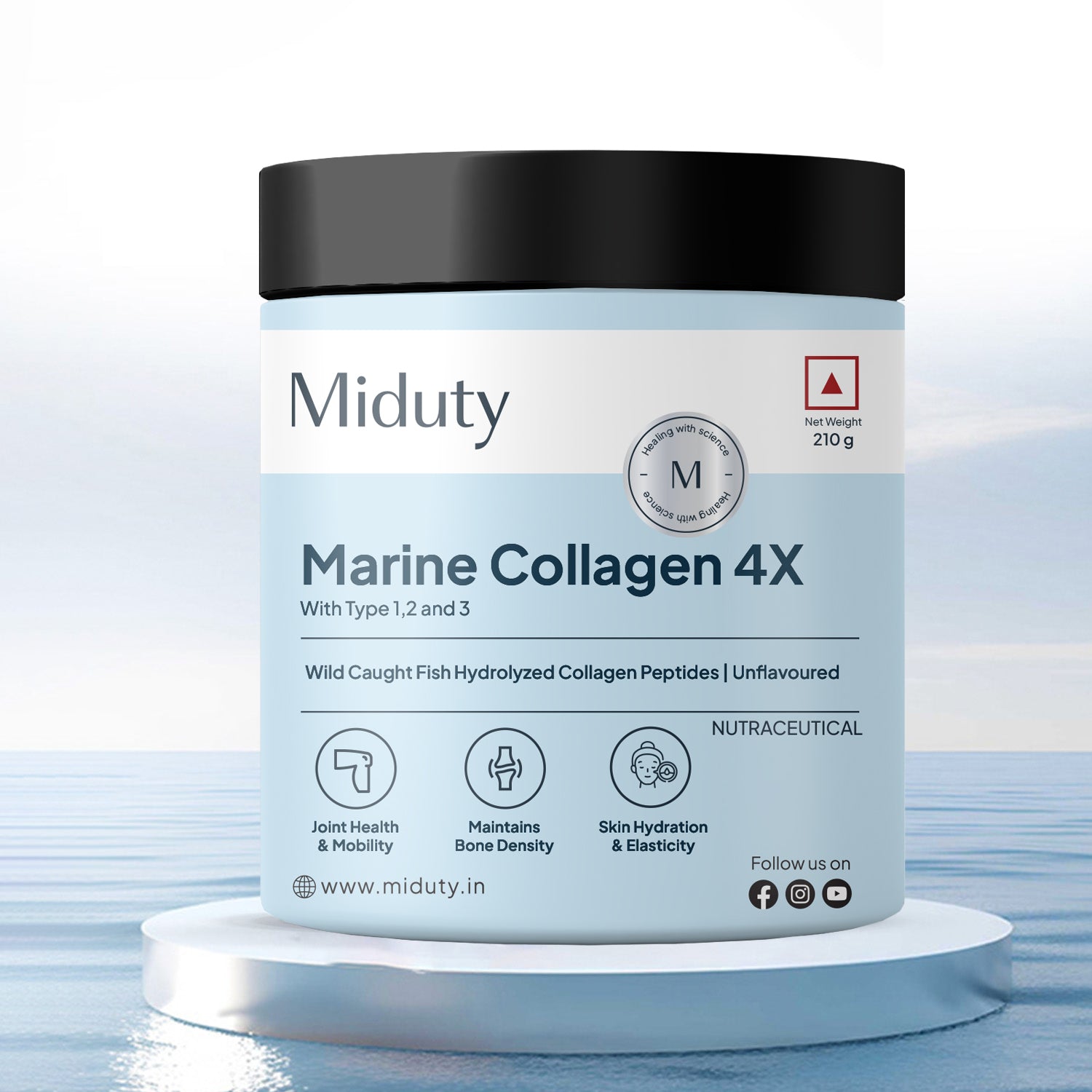
The Science of Protein Absorption: Why Some Proteins Work Better Than Others
Picture this: You just finished a workout or a long day, and you sit down with a big plate of chicken or sip on a protein shake. You think, "Yes! My muscles are going to love this!" But sometimes, even after eating enough protein, you still feel tired, your muscles don't seem to grow, or you don't feel full for long. Why is that?
Here's the truth — it's not just about how much protein you eat, but how much your body can absorb and use. Some proteins get digested easily and reach your muscles fast. Others take longer or don't get used as efficiently.
Let's break down, in simple words, how protein absorption works, why some proteins are better than others, and how you can make sure your body gets the most out of the protein you eat.
Key Takeaways
1. Eating protein isn't enough; your body must absorb it well. Simply consuming large amounts of protein doesn't guarantee better results. What matters most is how effectively your body breaks it down, absorbs it, and uses it to repair and build tissues.
2. Protein quality depends on its amino acid profile and digestibility. High-quality proteins like whey, casein, and eggs contain all nine essential amino acids and are easily absorbed. Plant proteins can be just as effective when combined properly, such as mixing rice with lentils or pea with rice protein.
3. Different proteins work at different speeds. Whey protein is absorbed quickly, making it ideal after workouts. Casein digests slowly, offering a steady release of amino acids. Plant-based proteins fall somewhere in between, providing moderate digestion and sustained nourishment.
4. Your body's ability to use protein depends on several factors. Age, digestion, gut health, and activity level all affect how well you absorb and use protein. Regular exercise improves your body's ability to make use of amino acids, while a healthy gut ensures better nutrient absorption.
5. You can boost protein absorption with smart habits. Choose complete or blended protein sources, spread your intake throughout the day, and pair protein with good digestion practices. Exercising regularly and maintaining gut health further enhance how efficiently your body uses protein.
Understanding Protein Absorption
Protein absorption is the process through which your body breaks down dietary protein into smaller units called amino acids and transports them into the bloodstream. Once absorbed, these amino acids are used to repair tissues, build muscles, produce enzymes and hormones, and support overall body function.
The process begins in the stomach, where stomach acid and enzymes like pepsin start breaking down proteins into peptides. It continues in the small intestine with enzymes like trypsin and chymotrypsin, which further split peptides into individual amino acids. These amino acids are then absorbed through the intestinal walls and delivered to cells throughout the body for recovery, growth, and energy production.
Why Is Protein Absorption Important?
Efficient protein absorption is essential because even if you consume high-quality protein, your body can't benefit unless it's properly digested and absorbed. Without optimal absorption, the amino acids your body needs for muscle repair, skin regeneration, hormone balance, and immune strength may never reach their destination.
Proper protein absorption helps in:
- Muscle growth and recovery: Especially after workouts, efficiently absorbed protein rebuilds and strengthens muscle fibers.
- Improved metabolism: Amino acids support the production of metabolic enzymes that help convert food into energy.
- Hormonal and enzyme function: Key hormones like insulin and enzymes involved in digestion are made from proteins.
- Immune system health: Antibodies that protect you from infections are made of proteins.
When absorption is poor, even a protein-rich diet can lead to fatigue, weak muscles, slow recovery, and poor overall health.
Common Signs of Poor Protein Absorption
If your body isn't absorbing protein efficiently, it often shows through visible and internal symptoms. Here are the most common warning signs:
- Muscle loss or weakness: Despite eating enough protein, your muscles may shrink or feel fatigued.
- Hair, skin, and nail problems: Brittle nails, hair thinning, and dull skin indicate lack of amino acids for tissue repair.
- Bloating and digestive discomfort: Undigested protein can ferment in the gut, leading to gas, bloating, and indigestion.
- Frequent infections: Weak immunity due to insufficient antibodies made from protein.
- Slow wound healing: Amino acids are vital for tissue regeneration, so cuts and injuries may heal slowly.
- Chronic fatigue: Low protein absorption means less fuel for your cells and poor energy production.
If these signs persist, it's a signal your body might not be breaking down or utilizing protein efficiently. Supporting your gut health with digestive enzymes, probiotics, and adequate hydration can significantly improve absorption.
What Happens to Protein After You Eat It?
When you eat protein: from eggs, chicken, lentils, or anything else — your body doesn't use it right away. It first has to break it down into smaller parts called amino acids. Think of it like building blocks: your body breaks down the old "protein house" you ate, then reuses those blocks to build new "muscle houses" in your body. Here's how it happens:
- In your stomach: Your stomach acid and enzymes act like tiny scissors. They cut big protein pieces into smaller ones.
- In your small intestine: More enzymes come in to chop those smaller pieces into individual amino acids. These amino acids are then absorbed into your bloodstream.
- In your body: Once they reach your blood, they travel to places that need repair like your muscles, skin, and organs.
Here's the important part, not all proteins get broken down and absorbed equally. Some proteins give your body more usable building blocks than others.
Factors That Affect Protein Absorption
Protein absorption doesn't depend only on how much protein you eat — it's also influenced by how well your body can digest and utilize it. Several internal and external factors can enhance or reduce the efficiency of protein absorption. Understanding these helps you make smarter dietary and lifestyle choices.
1. Type and Quality of Protein
Not all proteins are absorbed equally. Animal-based proteins like eggs, chicken, fish, and dairy generally have a higher bioavailability (meaning they're easier to digest and absorb) compared to some plant-based proteins that may contain fiber or anti-nutrients. However, plant proteins like pea, soy, or rice protein isolates are highly digestible when processed correctly. [1]
2. Digestive Health
Your gut plays a direct role in how effectively protein is absorbed. Low stomach acid, poor enzyme production, or gut issues such as leaky gut syndrome, IBS, or inflammation can reduce the breakdown of protein. A healthy gut lining and strong digestive enzyme activity are key for efficient protein absorption. [2]
3. Age and Metabolism
As you age, stomach acid and enzyme levels naturally decline, making it harder to digest protein efficiently. This is one reason older adults often experience muscle loss or slower recovery — not from lack of protein intake, but from reduced absorption efficiency.
4. Meal Composition
The foods you eat alongside protein can influence how well it's absorbed. For instance:
- Eating protein with healthy fats and complex carbs slows digestion slightly, allowing for better amino acid uptake.
- Consuming it with fiber-rich or overly fatty meals may delay gastric emptying too much, reducing absorption efficiency.
5. Timing of Protein Intake
Spacing your protein intake evenly throughout the day helps maximize absorption. Instead of eating all your protein in one meal, consuming 20–30 grams per meal supports better muscle protein synthesis and digestion.
6. Stress and Lifestyle Factors
Chronic stress, poor sleep, and overtraining can suppress digestive enzymes and reduce nutrient absorption. Stress diverts energy away from digestion toward the body's "fight-or-flight" response, leaving proteins only partially digested.
7. Use of Medications and Alcohol
Certain medications (like antacids or antibiotics) and excessive alcohol intake can lower stomach acid or harm gut flora, both of which are crucial for proper protein digestion and absorption.
How to Increase Protein Absorption?
Now, here's the part everyone loves — how to make sure your body gets the most from the protein you eat.
1. Pick the Right Proteins
Choose high-quality sources:
- Animal-based: Eggs, chicken, fish, milk, curd, paneer.
- Plant-based: Soy, tofu, lentils, chickpeas, peas, quinoa, or mixed combinations like rice + beans.
2. Cook Smart
- Soak and cook lentils, beans, and grains well.
- Avoid burning or over-frying protein foods.
- Light grilling, boiling, or steaming works best.
3. Combine Foods
If you're vegetarian or vegan, mix foods like:
- Rice + Lentils (Dal Chawal)
- Whole Wheat Bread + Hummus
- Peanut Butter + Whole Grain Toast
Together, these give all the essential amino acids.
4. Eat in Small, Regular Meals
Your body uses protein better when it gets it throughout the day — not all at once. Try spreading your protein across 3–4 meals instead of one big dinner.
5. Exercise Regularly
Working out tells your muscles, "Hey, we need more protein here!" After exercise, your muscles soak up protein faster, especially if you eat a protein-rich meal or shake within an hour.
6. Take Care of Your Gut
A healthy gut helps absorb nutrients better. Eat enough fiber, include probiotics (like yogurt or fermented foods), and drink enough water.
Why Do Some Proteins Work Better Than Others?
Let's make it simple: A good protein is one that your body can easily digest and turn into muscle, tissue, and energy.
Here are the main reasons why some proteins work better than others — especially when it comes to protein powders.
1. The Right Building Blocks Matter
Proteins are made of tiny parts called amino acids — think of them like LEGO pieces that your body uses to build muscles, skin, and other tissues.
Out of 20 amino acids, 9 are called essential amino acids because your body can't make them — you must get them from food or supplements. Protein powders that contain all 9 essential amino acids are known as complete proteins.
- Whey, casein, and egg protein powders are complete proteins and give your body everything it needs for muscle repair.
- Some plant-based powders (like pea or rice protein) may be missing one or two amino acids, but when combined (like pea and rice blends), they become complete.
When choosing a protein powder, look for one that's complete or has a blend that covers all the essential amino acids.
2. How Easy It Is to Digest
Not all protein powders digest at the same speed or ease.
- Whey protein isolate is absorbed very quickly, making it ideal after workouts when your body needs fast recovery.
- Casein protein digests slowly, providing a steady release of amino acids over several hours — perfect before bedtime.
- Plant-based proteins digest at a moderate speed and can be easier on the stomach for people sensitive to dairy.
Some protein powders are also hydrolyzed, which means they're pre-broken down into smaller pieces called peptides. These are absorbed faster and are gentler on digestion.
If you have a sensitive stomach or want quick recovery, a whey isolate or hydrolyzed protein is often a great choice.
3. How Much Your Body Can Use
Even if your shake has 30 grams of protein, your body doesn't always use all of it for building muscle — it depends on protein quality and timing.
- High-quality proteins such as whey and egg are more efficiently used by the body to build and repair tissues.
- Lower-quality proteins such as some inexpensive plant or collagen blends may lack important amino acids, making them less effective.
To make sure your protein powder works best:
- Choose one with at least 2–3 grams of leucine per serving, since leucine helps trigger muscle growth.
- Spread your protein intake throughout the day — your body builds muscle better when it gets steady amounts rather than one large dose.
4. How the Protein Powder Is Made
The way a protein powder is processed also affects how well your body absorbs it.
- Whey isolate is filtered to remove most fats and carbohydrates, making it easier to digest and faster to absorb than regular whey concentrate.
- Hydrolyzed protein powders are "pre-digested," so they absorb extremely quickly and are excellent for post-workout recovery.
- Lower-quality powders may contain fillers, artificial sweeteners, or cheap protein sources that cause bloating or slow digestion.
Always check the ingredient label and look for:
- A short, clean ingredient list.
- No unnecessary fillers or added sugars.
- A mix of essential amino acids, or a blend of proteins if it's plant-based.
Common Myths About Protein
Myth 1: You can't absorb more than 30g of protein at once.
Wrong! Your body can digest and absorb much more — but how efficiently it uses it depends on your needs, timing, and activity.
Myth 2: Plant protein isn't good.
Also wrong! Plant proteins work great when you eat a variety and combine them well.
Myth 3: Eating too much protein harms your kidneys.
If you're healthy, moderate to high protein intake is perfectly safe. Just drink enough water.
Conclusion
Protein isn't just about building muscle, it's about keeping your whole body healthy. But eating protein is only half the job. The real magic happens when your body digests, absorbs, and uses it well.
So, next time you eat eggs, tofu, or dal, think beyond just the number of grams. Ask yourself, is my body really absorbing this protein? By choosing the right foods, cooking them smartly, and keeping your body healthy, you can make sure every bite counts.
FAQ's on Protein Absorption -
Q1 - What is the process of protein absorption?
Protein absorption is a multi-step process that starts in the stomach, where hydrochloric acid and the enzyme pepsin begin breaking down dietary protein into smaller fragments known as peptides. These peptides then move into the small intestine, where enzymes like trypsin and chymotrypsin further break them down into individual amino acids. The amino acids are absorbed through the intestinal walls into the bloodstream, from where they are transported to various tissues to build muscles, repair cells, and support hormone and enzyme production.
Q2 - What is the best way to absorb protein?
The most effective way to enhance protein absorption is by supporting your digestive system and spreading your protein intake evenly throughout the day. Eating smaller, protein-rich meals every few hours helps the body utilize amino acids more efficiently. Staying hydrated, chewing food properly, and including digestive aids such as probiotics, fermented foods, or digestive enzymes can also improve absorption. Pairing protein with healthy fats and complex carbohydrates helps slow digestion slightly, allowing the body more time to absorb nutrients effectively.
Q3 - Does your body absorb 100% of protein?
The body does not absorb 100 percent of the protein you consume. Typically, most people absorb between eighty to ninety-five percent of protein depending on the source and individual digestive health. Animal-based proteins such as eggs, whey, chicken, and fish are more easily absorbed because they contain all the essential amino acids and have high bioavailability. In contrast, plant-based proteins may have a slightly lower absorption rate due to the presence of fiber and anti-nutrients that can interfere with digestion.
Q4 - What blocks protein absorption?
Several factors can reduce or block protein absorption in the body. Low stomach acid, inadequate digestive enzyme production, and gut inflammation are among the most common reasons. Chronic stress, poor sleep, and excessive alcohol consumption can also impair digestion. Additionally, certain medications like antacids, and diets high in processed foods or sugar, may disrupt the gut lining, preventing amino acids from being absorbed efficiently. Maintaining gut health and reducing digestive stress is crucial for optimal protein utilization.
Q5 - Can stress affect protein absorption?
Yes, chronic stress can significantly reduce protein absorption. When the body is under stress, it activates the fight or flight response, which slows down digestion and reduces the secretion of stomach acid and enzymes required for protein breakdown. Over time, this leads to poor nutrient absorption, bloating, and even muscle loss despite adequate protein intake. Managing stress through relaxation techniques, quality sleep, and balanced nutrition helps restore normal digestive function and improves overall nutrient absorption.
Q6 - What factors affect protein absorption?
Protein absorption is influenced by many interconnected factors, including the quality of the protein source, digestive health, age, metabolism, and lifestyle. A healthy gut with sufficient enzyme production and stomach acid promotes efficient absorption, while inflammation or gut imbalances can slow it down. Eating habits, such as how frequently and what you eat with protein, also play a role. Even emotional stress and certain medications can reduce the body's ability to digest and absorb protein efficiently.
Q7 - Do different proteins absorb differently?
Yes, different protein sources are absorbed at different rates. Whey protein, for example, is absorbed very quickly and is ideal for post-workout recovery, while casein protein digests slowly, providing a steady release of amino acids over several hours. Egg and animal proteins generally have the highest bioavailability, meaning the body can use most of what is consumed. Plant-based proteins vary depending on their fiber and anti-nutrient content, but combining sources such as rice and pea protein can improve overall absorption.
Q8 - What vitamin helps you absorb protein?
Vitamin B6 plays a critical role in helping the body metabolize and absorb protein efficiently. It assists in the conversion of amino acids into usable energy and supports tissue repair. In addition to Vitamin B6, minerals like zinc and magnesium aid in enzyme production, which enhances protein digestion. Ensuring a diet rich in these nutrients supports better protein utilization and overall metabolic health.
Q9 - Does vitamin D increase protein absorption?
Vitamin D does not directly help in protein digestion, but it supports muscle function and protein synthesis. It helps regulate calcium and phosphorus balance in the body, which are essential for muscle growth and recovery. People with optimal vitamin D levels tend to have better muscle strength and protein utilization, so maintaining adequate vitamin D through sunlight exposure or supplementation can indirectly enhance the body's ability to use protein effectively.
Q10 - Does vitamin B12 help absorb protein?
Vitamin B12 supports protein metabolism by aiding in the formation of red blood cells and maintaining proper nerve function. While it does not directly break down protein, it helps the body utilize absorbed amino acids to create energy and repair tissues. A deficiency in vitamin B12 can lead to fatigue, poor concentration, and muscle weakness because the body cannot efficiently convert amino acids into usable energy. Therefore, maintaining adequate levels of vitamin B12 is essential for optimal protein utilization and overall health.
References
| Sr. No. | Reference Links |
| 1. | Protein quality, nutrition and health |
| 2. | Personalizing Protein Nourishment |













